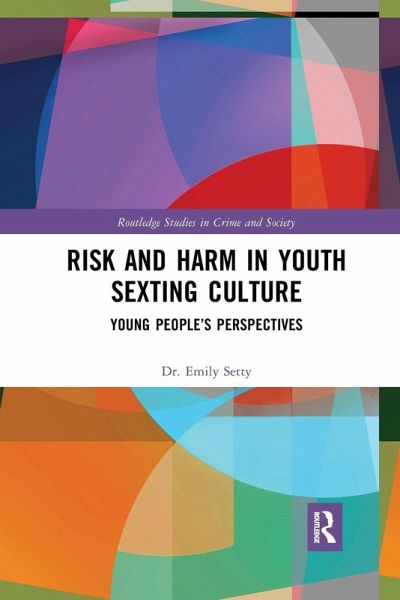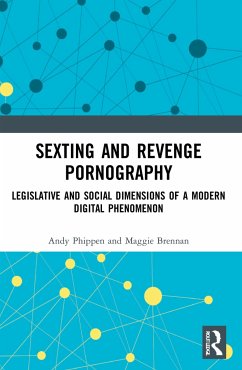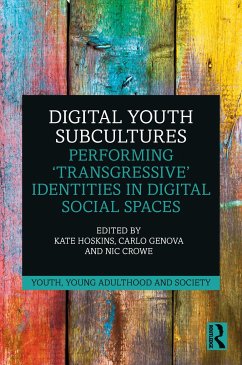
Risk and Harm in Youth Sexting
Young People's Perspectives
Versandkostenfrei!
Versandfertig in 6-10 Tagen
45,99 €
inkl. MwSt.
Weitere Ausgaben:

PAYBACK Punkte
23 °P sammeln!
This book draws upon interviews with teenage young people to explore their perspectives on risk and harm in 'youth sexting culture'. It focuses specifically on digital sexual image-sharing among young people. It contextualises the findings in terms of the wider literature on youth sexting and the broader theoretical and conceptual debates about the phenomenon in public and academic spheres.The book explores young people's attitudes toward and experiences of non-consensual sexting and privacy violations. It analyses the broader sociocultural context to youth sexting and discusses issues such as...
This book draws upon interviews with teenage young people to explore their perspectives on risk and harm in 'youth sexting culture'. It focuses specifically on digital sexual image-sharing among young people. It contextualises the findings in terms of the wider literature on youth sexting and the broader theoretical and conceptual debates about the phenomenon in public and academic spheres.
The book explores young people's attitudes toward and experiences of non-consensual sexting and privacy violations. It analyses the broader sociocultural context to youth sexting and discusses issues such as victim-blaming, social shaming and bullying within youth sexting culture. It reflects upon the nature of predominant approaches to responding to youth sexting (both legal and educational/pedagogic) and identifies what young people want and need when it comes to addressing risk and harm, based upon what the evidence shows about their situated realities and lived experiences.
Public and academic discourse surrounding youth sexting, and the legal and educational policy responses to the phenomenon have developed and changed over recent years. The field is increasingly contested and there are ongoing debates about how to protect young people from harm while respecting their rights as individuals and encouraging them to develop into ethical sexual citizens, including within digital environments. This book presents empirical data to show how risk and harm in youth sexting culture is predicated upon a denial of rights to sexual and bodily integrity, autonomy and legitimacy.
The book explores young people's attitudes toward and experiences of non-consensual sexting and privacy violations. It analyses the broader sociocultural context to youth sexting and discusses issues such as victim-blaming, social shaming and bullying within youth sexting culture. It reflects upon the nature of predominant approaches to responding to youth sexting (both legal and educational/pedagogic) and identifies what young people want and need when it comes to addressing risk and harm, based upon what the evidence shows about their situated realities and lived experiences.
Public and academic discourse surrounding youth sexting, and the legal and educational policy responses to the phenomenon have developed and changed over recent years. The field is increasingly contested and there are ongoing debates about how to protect young people from harm while respecting their rights as individuals and encouraging them to develop into ethical sexual citizens, including within digital environments. This book presents empirical data to show how risk and harm in youth sexting culture is predicated upon a denial of rights to sexual and bodily integrity, autonomy and legitimacy.














